- Home
- Kay Hooper
Hidden Salem
Hidden Salem Read online
Titles by Kay Hooper
Bishop / Special Crimes Unit Novels
HAVEN
HOSTAGE
HAUNTED
FEAR THE DARK
WAIT FOR DARK
HOLD BACK THE DARK
HIDDEN SALEM
The Bishop Files
THE FIRST PROPHET
A DEADLY WEB
FINAL SHADOWS
BERKLEY
An imprint of Penguin Random House LLC
penguinrandomhouse.com
Copyright © 2020 by Kay Hooper
Penguin Random House supports copyright. Copyright fuels creativity, encourages diverse voices, promotes free speech, and creates a vibrant culture. Thank you for buying an authorized edition of this book and for complying with copyright laws by not reproducing, scanning, or distributing any part of it in any form without permission. You are supporting writers and allowing Penguin Random House to continue to publish books for every reader.
BERKLEY and the BERKLEY & B colophon are registered trademarks of Penguin Random House LLC.
Library of Congress Cataloging-in-Publication Data
Names: Hooper, Kay, author.
Title: Hidden Salem / Kay Hooper.
Description: First Edition. | New York : Berkley, 2020. | Series: The bishop/special crimes unit
Identifiers: LCCN 2019055490 (print) | LCCN 2019055491 (ebook) | ISBN 9781984802897 (hardcover) | ISBN 9781984802910 (ebook)
Subjects: GSAFD: Suspense fiction.
Classification: LCC PS3558.O587 H53 2020 (print) | LCC PS3558.O587 (ebook) | DDC 813/.54—dc23
LC record available at https://lccn.loc.gov/2019055490
LC ebook record available at https://lccn.loc.gov/2019055491
First Edition: April 2020
Jacket design by Rita Frangie
Jacket art: Village skyline by Artem Hvozdkov / Shutterstock; typography by Anna Zasimova / Shutterstock
This is a work of fiction. Names, characters, places, and incidents either are the product of the author’s imagination or are used fictitiously, and any resemblance to actual persons, living or dead, business establishments, events, or locales is entirely coincidental.
pid_prh_5.5.0_c0_r0
CONTENTS
Titles by Kay Hooper
Title Page
Copyright
Prologue
Chapter One
Chapter Two
Chapter Three
Chapter Four
Chapter Five
Chapter Six
Chapter Seven
Chapter Eight
Chapter Nine
Chapter Ten
Chapter Eleven
Chapter Twelve
Chapter Thirteen
Chapter Fourteen
Chapter Fifteen
Chapter Sixteen
Chapter Seventeen
Chapter Eighteen
Chapter Nineteen
Chapter Twenty
Chapter Twenty-one
Chapter Twenty-two
Epilogue
Character Bios
Psychic Terms and Abilities
Author’s Note
About the Author
PROLOGUE
Salem
Do it.
Do it now.
Mark Summers could hear the command, but not out loud. His head hurt horribly, and he had the hazy idea that the commands that kept ringing out were actually inside his head, as clear as one of his own thoughts, but . . . savage. It blocked out everything else, the people circling him, the almost overpowering scent of some kind of herb or incense, the low sounds they had been making—not exactly a chant but a weird sort of hum.
Before he’d closed his eyes, they had only been shadowy shapes flickering in the candlelight, but he’d felt their demand, like the one in his mind, insistent. Every beat of it hurt, and he had the dim sense that they had . . . done things . . . to his body. That they had hurt him, over and over.
And always the questions, the demands that hurt even more, that seemed to wrench at something inside his very skull.
“I don’t understand,” he managed to whisper, wondering vaguely what he was lying on, because it felt like solid stone. And he couldn’t move his arms or legs, even though he didn’t think he was tied down. No, there was . . . something holding him still. And he felt something else . . . wet . . . underneath him, and flowing out of him.
Do it. You know. Deep down inside you, you know.
“No . . . I don’t understand.” He felt appallingly weak, even though they’d been feeding him, more or less. Since he’d stopped on his way into Salem to help a stranded traveler and—and he didn’t remember much after that.
Summers opened his eyes for a moment, then shut them again, dizzy, because the flickering candles were moving now, all around him, and that hum grew louder, more of a chant now, and he still didn’t understand.
“Please,” he murmured. “Please let me go. I won’t tell anyone. I just want to go . . . home.”
Hot breath on his face, smelling faintly of something he almost recognized, and then a harsh voice said, “You are home, Mark. You know it’s true. You’ve come back to Salem. Back to your family.”
“I don’t have a family,” he whispered.
“Your family called you here, Mark. And now it’s time for you to do what you were born to do.”
He wanted to question, to protest, but there was a pressure building in his mind, something . . . powerful . . . pressing against the bone of his skull, and he knew, suddenly, that he would never be able to contain all that strength, all that power. It was too big for him, too much for him . . . too much . . .
He was fading, losing consciousness, but even as the blackness closed over him he identified the smell of that hot, harsh breath.
Brimstone.
ONE
TUESDAY
He passed her on one of the backstreets of downtown Salem, and if Geneva Raynor hadn’t been relaxing her shield for a bit so she could send out a few cautiously probing telepathic tendrils, she would have completely missed him. A hunter, recently down from the mountains even though it was still very early, and . . .
Oh, God, oh, Jesus, what coulda done that? I never seen so much blood, so much . . . What kind of animal coulda . . . And all that on the rocks . . . all them symbols or signs, like witchcraft . . . but in blood, I know it was in blood . . .
His horror was such that Geneva could hardly sort through and try to get a location from his scattered thoughts, and what she got was maddeningly uncertain, a vague direction at best.
Still, she waited only until he was well past, then wandered in the opposite direction, pausing now and again, against every instinct screaming at her to hurry, in order to point her camera and click to capture a beautiful bit of scenery.
Or whatever. She didn’t give a damn about the scenery.
She didn’t want to take the time to go back to the B and B and lose her camera; for one thing, she’d need it. And for another, from everything she’d heard before and since arriving in Salem, the town militia was uncanny in how swiftly and thoroughly they “took care” of little problems. Like a murdered and mutilated human body.
Possibly, she reminded herself, knowing that whatever the hunter had seen might have been something else. Maybe.
But probably he’d see
n just what he thought he had. Hunters knew what dead game looked like, after all, even if it had been torn to shreds.
There had been three dead human bodies to date, if her information was correct; she had no reason to doubt that info and every reason to trust it. And she had certainly found no trace of the three missing persons she’d been sent here to ferret out. She was very good at her job; if they had been here, she would have found them, likely in the first few days but certainly in the last two weeks. They were gone. And by now, Geneva didn’t expect to find them, alive or dead.
But this one . . . if this was a fourth missing person . . . then she had the chance to see at least what the hunter had seen, get a step or two ahead of all this for once.
So she made her way from town, her pace lazy as she looked around, as usual, for what might make a good shot. She was casual when she began to follow one of the trails that led seemingly straight up a mountain, as she had done fairly often in the last couple of weeks. But this time Geneva didn’t remain on the trail long; she didn’t want to be observed by anyone in town heading in a particular direction. And she was very much aware that as soon as the hunter calmed down, or perhaps sooner, he’d be reporting to a person in authority what he’d seen—and then the militia would be on the job.
Forcing herself to think slowly and clearly even as she used saplings and sometimes harsh bushes that didn’t spare her hands to help her to climb the slope, her legs already starting to burn despite a superbly conditioned body, Geneva wondered if a fourth person had, in fact, gone missing while she’d been here in Salem. There would have been no way for Bishop to let her know. Not, at least, until he sent her partner in.
Friday or Saturday, most likely.
Until then, she was on her own. Today was Tuesday.
Geneva kept looking around, trying to find the landmarks she had gotten somewhat fuzzily from the hunter. She was able to pick out one giant boulder and another odd-shaped tree, and as soon as she knew she was in the right general area, she concentrated and opened up the lone spider sense she could claim.
At first there was nothing, and Geneva silently cursed the camera that seemed to be catching on every branch and bit of undergrowth, knowing it was a distraction she didn’t need. She paused a moment in the steep climb toward . . .
Blood.
The spider senses varied within the members of Bishop’s unit, some able to enhance all their normal senses, and some only one or two. For Geneva it had always been scent. No matter how hard she tried, she could not enhance her sight or hearing. But her scent . . . that she could do.
With a vengeance.
Blood . . . blood . . . blood . . .
She tried to breathe through her mouth, which was easy in one way because she was getting winded from the long, steep climb, and more difficult in another way because the smell of blood was so strong she could taste it now, thick and coppery. And even without enhanced senses she could hear the buzzing of flies . . .
Geneva closed her mind to that. She kept climbing grimly, until the sapling she’d grasped to help pull her along snapped forward and propelled her into a small clearing so quickly she was barely able to keep to her feet.
Blessed with a cast-iron stomach and a seasoned agent besides, Geneva didn’t immediately lose her breakfast. But her enhanced sense of smell told her the hunter had, and she tried not to think about that, tried, now, to shut down the spider sense.
Not that she could. Once triggered, it was a wayward thing with a mind of its own, the team members who used it had decided. Unlike the truly psychic senses, which could usually be cut off by erecting a shield, the spider senses were just . . . there. Once turned on, they were impossible to turn off. They were just raw nerves exposed to the air, gradually ebbing over minutes. Or hours.
Grimly, Geneva breathed through her mouth, trying to ignore the thick feeling of scent even there, and stood right where she was, studying the scene carefully.
A dump site. Not a murder scene; for all the blood and viscera, and there was a lot of both, the ground around the . . . remains . . . wasn’t soaked, and that told her this victim had been killed somewhere else.
The worst of the butchery had been done afterward, and here, long after his heart had stopped pumping blood.
Victim. Male; he was naked, and nothing had been done to mutilate his genitals. She noted that dispassionately, just as she mentally checked the box beside NOT SEXUALLY MOTIVATED.
Young but no child; from what she could see of bony shoulders and upper chest, her guess would be in his twenties. After that . . . all she could do was note details. Arms and legs had been slashed repeatedly, some shallow cuts and some showing white bone. His chest and midsection had been opened, the breastbone and ribs broken outward, and with great force. That could be done by an expert with the right tools, she knew, but this . . . this didn’t look like anything she’d seen, not in textbooks, not at the body farm, and not at any crime scene or dump site she’d witnessed until now.
Almost as if he’d swallowed some kind of explosive device, though she saw no signs of other damage such a device would cause. Just those outward-bent, splintered ribs and breastbone.
Virtually all of his organs appeared undamaged yet had been cut free of the body and now lay alongside it in a way that looked to her eye more hurried than carefully staged.
And his head . . . his skull . . . looked as if it had somehow . . . burst open under the same extreme force that had broken the breastbone and ribs outward. Shards and fragments of bone from the skull were also angled outward, some bent, some broken, white in the morning sunlight with only a patch or two of scalp still clinging to bone.
His brain was gone.
Just gone.
It was difficult to remain dispassionate at that, but she mentally checked another box in her head: SOMETHING I’VE NEVER SEEN BEFORE; NO IDEA WHAT CAUSED IT.
Geneva forced herself to look carefully, still not moving closer, and saw no sign of that organ anywhere.
There were several boulders not much larger than basketballs around the body that looked as if they had been rolled from somewhere else and placed there, a few clearly pried loose from dark earth still clinging to them. Placed carefully, she thought, to surround the body. That much was staged. A hasty effort to make this look like something occult or satanic? And on bared areas of gray granite, probably in the victim’s blood, were signs and symbols. Like an ancient language. Or the scribbling of a toddler.
Geneva didn’t recognize a single one of them as having any kind of meaning, occult or otherwise. And though she might not be the SCU’s expert on the occult, she was more than familiar with the basics, as all primary agents were.
The clock in her head was ticking away the minutes she likely had before the militia arrived. And it was ticking fast. She grabbed at the camera, grateful for it now, and began skillfully photographing the scene.
She was no crime scene tech, but like all of Bishop’s people, she had spent some time working with the best specialized teams at Quantico in order to learn the skills she might need in the field. And that practice of their unit chief’s, arming his people with as much knowledge and experience as possible in a wide variety of skills, had come in handy more times than any of them could count. Because you never knew what you would need in the field until you were there.
She moved as carefully as possible, trying to leave no evidence that she had been there, circling the scene but staying well back, placing her feet wherever possible on rock or some other surface that would not leave traces.
They don’t use dogs to track. I don’t think they use dogs. Never heard of that, and I would have. I think. Surely would have picked up on it somehow. Maybe. Dammit.
Two weeks here and she knew so little.
It probably took no more than five minutes, though alarm bells were already screaming in her mind, before Geneva finished to her sati
sfaction. Then she carefully backed away, chose a different direction that would take her well away from the town before she’d have to angle back toward it, and began to make her way back down the mountain. She went cautiously, leaning on all the woodcraft she knew, pausing now and then to listen, to strain her eyes looking around through the dim forest. And then she went on.
The smell of blood she’d resolutely closed her mind to had gradually faded away. As for the rest . . . she didn’t need to see the pictures she’d taken to remember every horrific detail.
She was perhaps fifteen minutes and quite a distance from the dump site before she paused near a thicket of brambles, used a piece of dead limb to dig a hole in the ground, and lost her breakfast. When she was done, she carefully scraped the dirt back over the hole, then pulled a thicket of brambles over it.
She stood back, studying the area critically for a long moment to make certain there were no signs of her passing this way. And then Geneva adjusted the camera strap on her shoulder and continued to angle on down the mountain, toward one of the narrow but well-used trails that would take her to the town of Salem.
* * *
—
IT WAS STORMING. The storm had come out of nowhere, according to the bewildered weather guy on TV, and seemed isolated over a very small area. No snow, but a sporadic icy rain mixed with sleet. And thunder, which was rare with winter storms. He couldn’t understand it. Nellie Cavendish turned him off with a faint sigh. Of course it was storming.
It always stormed when she was upset.
Especially this upset.
She left the light on in the bathroom because she hated the dark, and lay back in the surprisingly comfortable bed. Leo licked her hand, and she gently pulled at her dog’s short, silky ears as he lay alongside her. He knew she was upset.
It was storming, after all.
“I won’t dream,” she murmured, to him or to herself. “Not tonight. I’m so close now. Surely I won’t dream.”
Leo whined.

 A Deadly Web
A Deadly Web Raven on the Wing
Raven on the Wing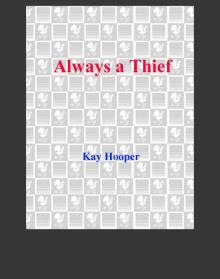 Always a Thief
Always a Thief Star-Crossed Lovers
Star-Crossed Lovers Blood Dreams
Blood Dreams Shades of Gray
Shades of Gray Rebel Waltz
Rebel Waltz Chill of Fear
Chill of Fear Sleeping With Fear
Sleeping With Fear After Caroline
After Caroline Time After Time
Time After Time Haunting Rachel
Haunting Rachel Hunting Fear
Hunting Fear Out of the Shadows
Out of the Shadows Whisper of Evil
Whisper of Evil Blood Sins
Blood Sins Hiding in the Shadows
Hiding in the Shadows C.J.'s Fate C.J.'s Fate C.J.'s Fate
C.J.'s Fate C.J.'s Fate C.J.'s Fate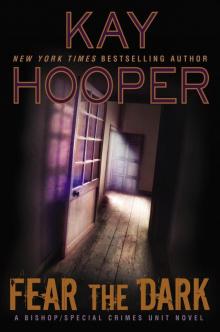 Fear the Dark
Fear the Dark Illegal Possession
Illegal Possession Stealing Shadows
Stealing Shadows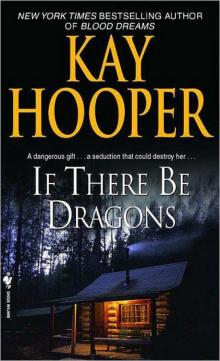 If There Be Dragons
If There Be Dragons Once a Thief
Once a Thief In Serena's Web
In Serena's Web On Wings of Magic on Wings of Magic
On Wings of Magic on Wings of Magic Hostage
Hostage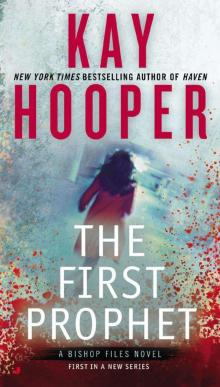 The First Prophet
The First Prophet Through the Looking Glass
Through the Looking Glass Golden Flames
Golden Flames Finding Laura
Finding Laura Haven
Haven The Haviland Touch
The Haviland Touch The Lady and the Lion
The Lady and the Lion Haunted
Haunted Velvet Ligntning
Velvet Ligntning Blood Ties
Blood Ties Adelaide, the Enchantress
Adelaide, the Enchantress The Matchmaker
The Matchmaker Golden Threads
Golden Threads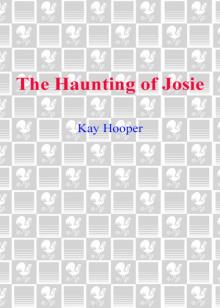 The Haunting of Josie
The Haunting of Josie Rafferty's Wife
Rafferty's Wife Amanda
Amanda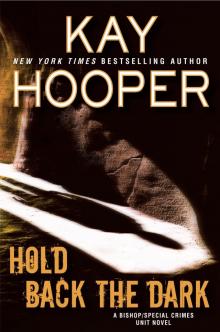 Hold Back the Dark
Hold Back the Dark Sense of Evil
Sense of Evil What Dreams May Come
What Dreams May Come Larger Than Life
Larger Than Life Enemy Mine
Enemy Mine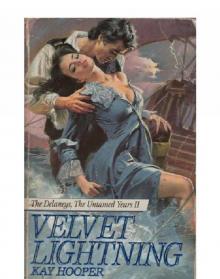 Velvet Lightning
Velvet Lightning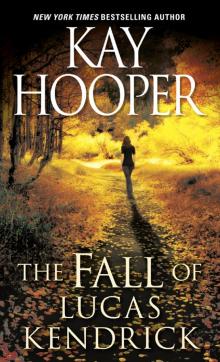 The Fall of Lucas Kendrick
The Fall of Lucas Kendrick Aces High
Aces High Captain's Paradise: A Novel
Captain's Paradise: A Novel The Wizard of Seattle
The Wizard of Seattle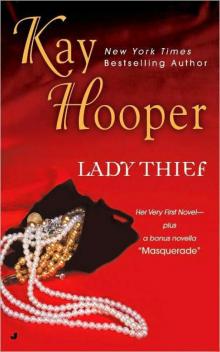 Lady Thief
Lady Thief Summer of the Unicorn
Summer of the Unicorn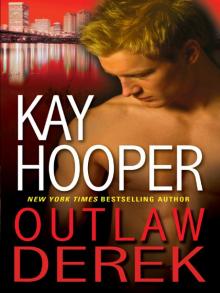 Outlaw Derek
Outlaw Derek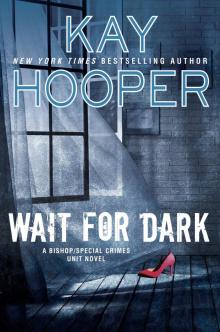 Wait for Dark
Wait for Dark The Glass Shoe
The Glass Shoe It Takes a Thief
It Takes a Thief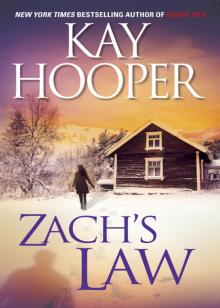 Zach's Law
Zach's Law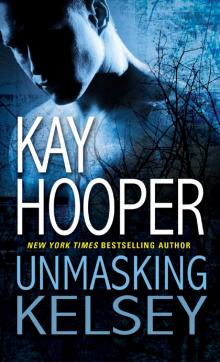 Unmasking Kelsey
Unmasking Kelsey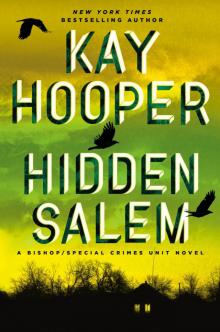 Hidden Salem
Hidden Salem